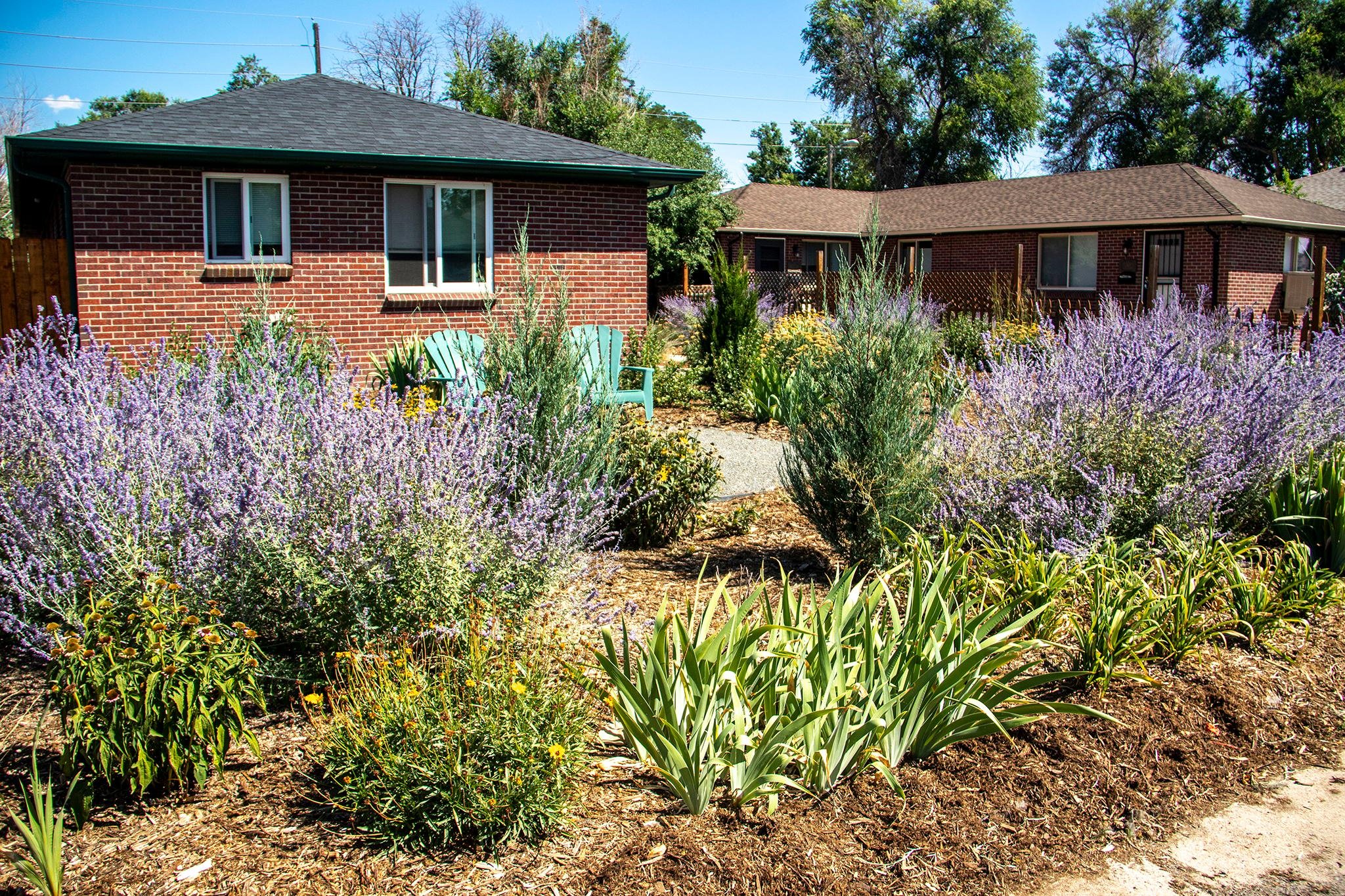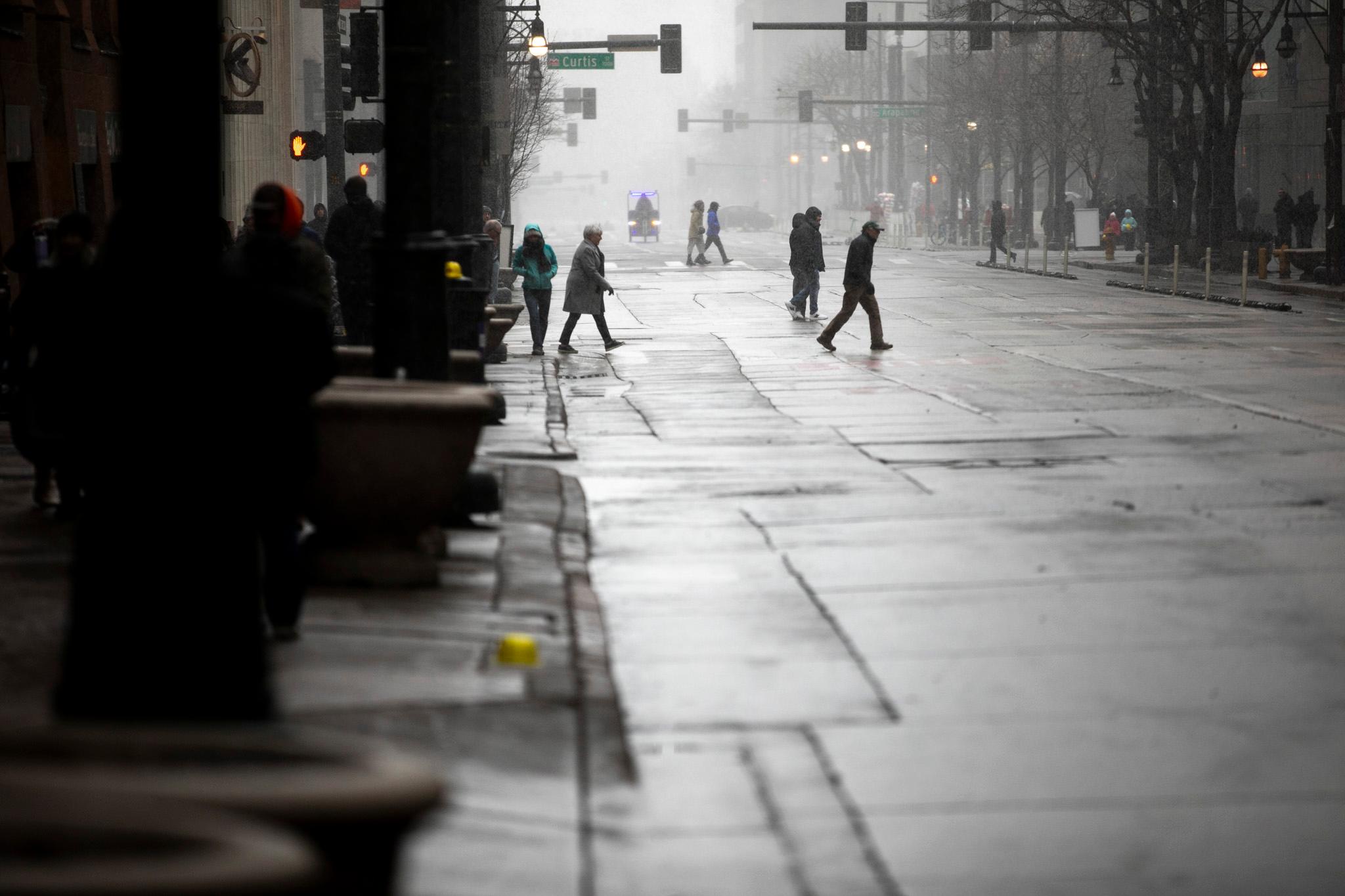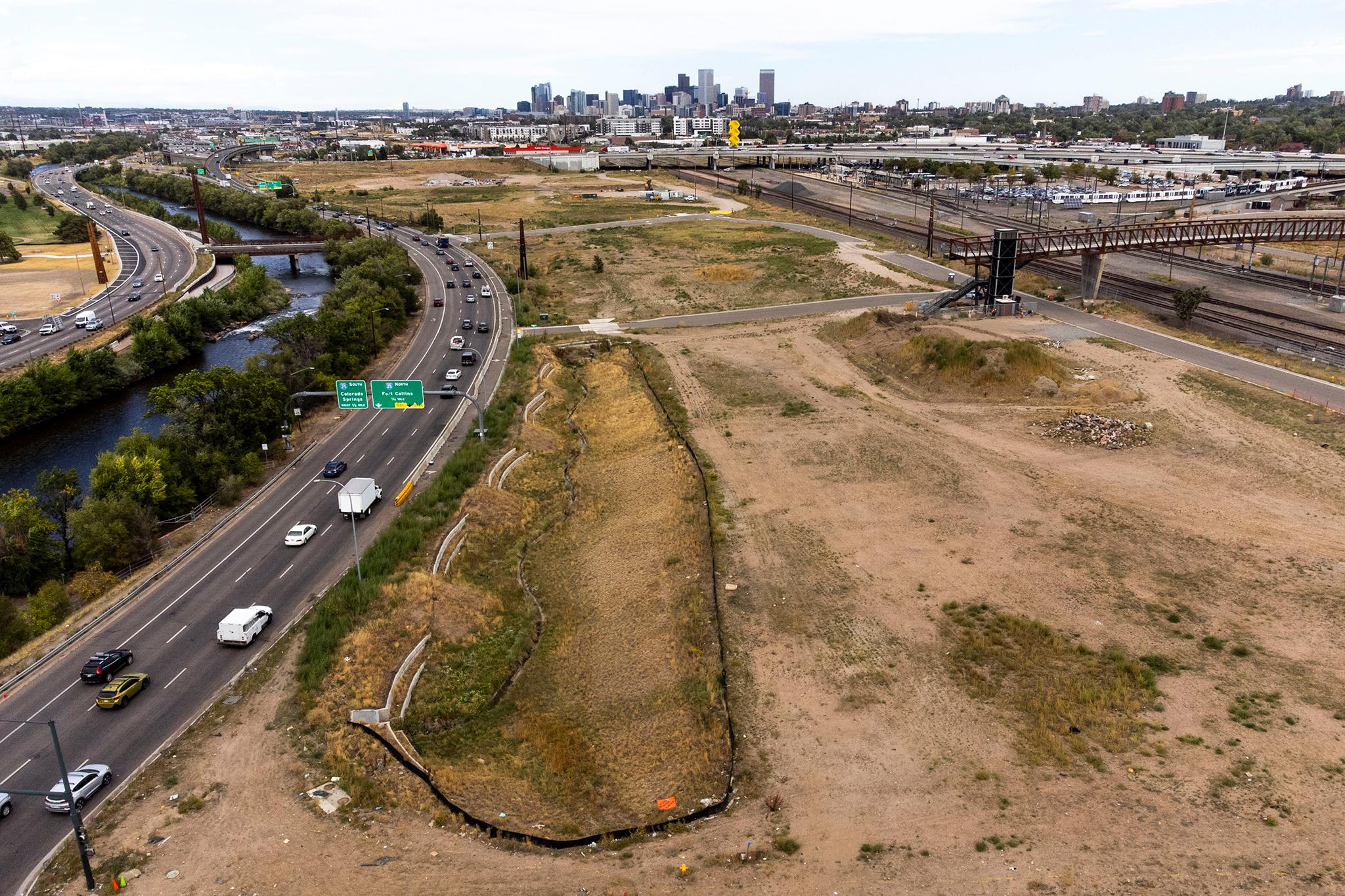Should grass be outlawed in Colorado?
That's the question being debated as the state and its cities explore how to get people to stop planting water-hungry turf.
Lawns suck up precious water, a resource already in short supply. Drought, exacerbated by climate change, threatens the future of cities, suburbs and agriculture. So naturally, high-water-use lawns in the high plains desert are viewed as foolhardy landscaping making the water situation worse.
Once upon a time, Denver led the country when it came to creating water-wise lawns -- at least, in theorizing them. In the early '80s, Denver Water invented the term xeriscaping, a form of landscaping that uses low-water plants, limited irrigation, mulch and more to reduce irrigation.
For years, Denver Water preached the benefits of xeriscaping, and the concept spread fast.

Now, Denver isn't leading the crusade to halt water-intensive landscaping locally -- Aurora is.
Aurora, which has more land than Denver, offers rebates for replacing turf with water-wise landscaping and recently banned certain uses of grasses and turf in new developments.
Mayor Mike Coffman, a Republican, explained why he proposed the ban in an op-ed in the Denver Post.
"It's critical now that elected officials take a proactive approach to meeting the water needs of their growing communities," he wrote. "That's why, as mayor of Aurora, I have proposed a new water conservation ordinance that will not only save a great deal of water but will preserve community amenities in a sustainable way."
The Aurora rules, which were designed to help the city meet its hefty water needs, ban turf whose primary purpose is aesthetics. The policy follows similar ones in other western cities like Las Vegas.
Earlier this month, Aurora City Council unanimously passed the policy.
Here's how Aurora's ban works:
Single-family homes can't plant turf on front or side yards in most cases. There are new restrictions on turf in alleys and backyards. Same with medians and curbside landscapes.
Want to take out water-wise landscaping to install turf? Too bad. The law says no.
When it comes to multi-family and commercial developments, schools, sports fields and interior landscaped common areas, turf can only be installed where activity or programming takes place.
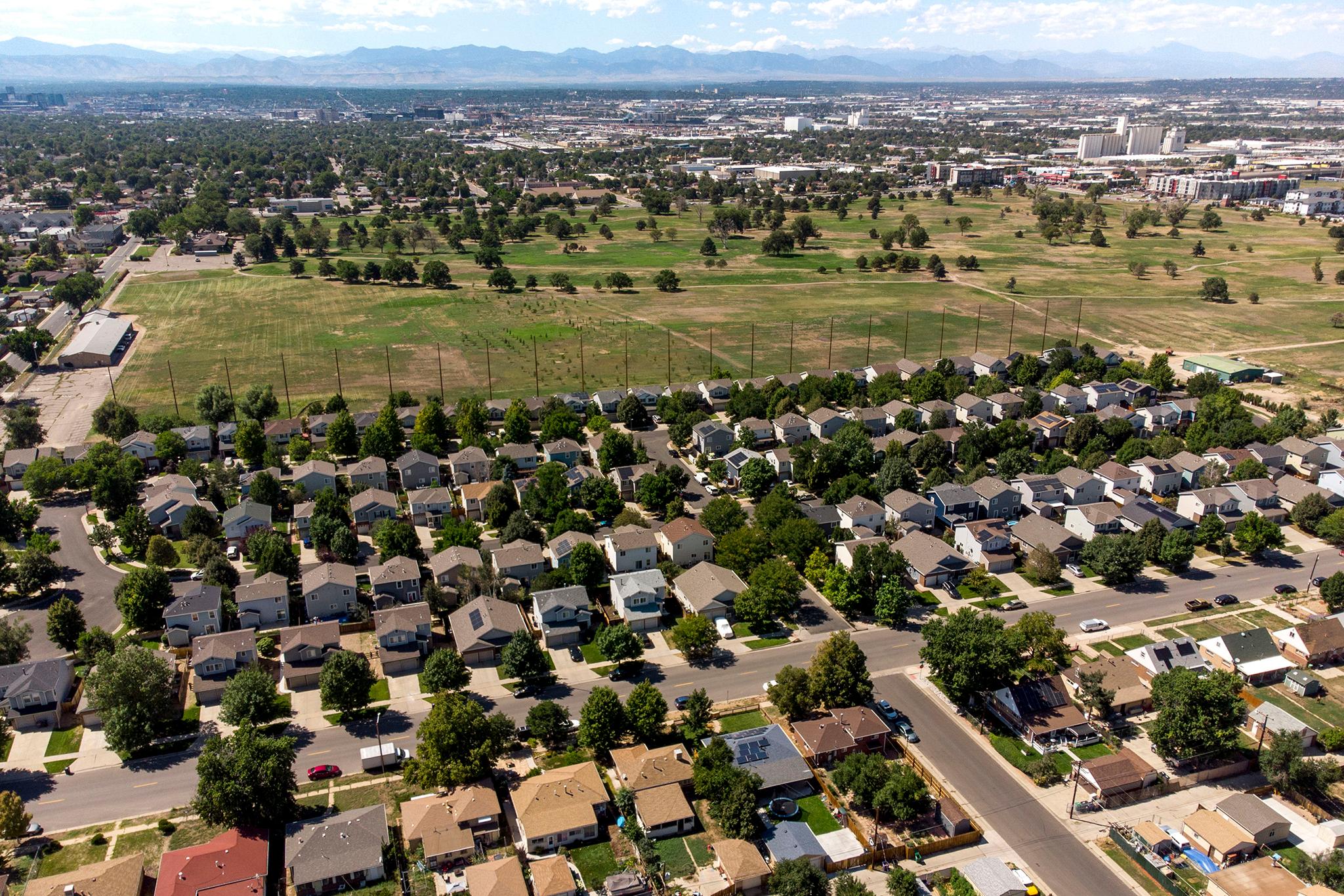
Golfers will bemoan this part of the ban: Turf can't be installed for new courses.
Ornamental water features are also out. New spray and sprinkler irrigation systems in medians and curbsides are prohibited.
Developments with site plans approved before January 1, 2023 are exempt from the new rules.
In three years, the economic impact of all this will be reviewed.
In his op-ed, Coffman explained that the policy was not in opposition to beautiful lawns.
"The ordinance does not mean that we don't want any landscaping," he wrote. "Aurora has many beautiful examples of efficient water-wise landscaping, and we will continue to encourage our current residents to take advantage of Aurora Water's robust rebate programs to covert their existing turf to this more practical option. We still want a beautiful city that can provide shade and plant options that help cool the environment, so the high standards set by our city code will still apply.

Colorado's state legislature also passed a bill incentivizing people to replace their grass lawns.
This policy has Denverite readers like Larry asking: "I read about a program (maybe state level?) to offer some sort of rebate/credit for getting rid of turf grass lawns - any updates?"
Not many.
Back in June, Gov. Jared Polis signed the law that would require the Colorado Water Conservation Board to create a statewide program financially incentivizing the "voluntary replacement of irrigated turf with water-wise landscaping."
Local governments, Native American tribes and nonprofits with their own programs can apply for some of the money to help finance their already existing programs.
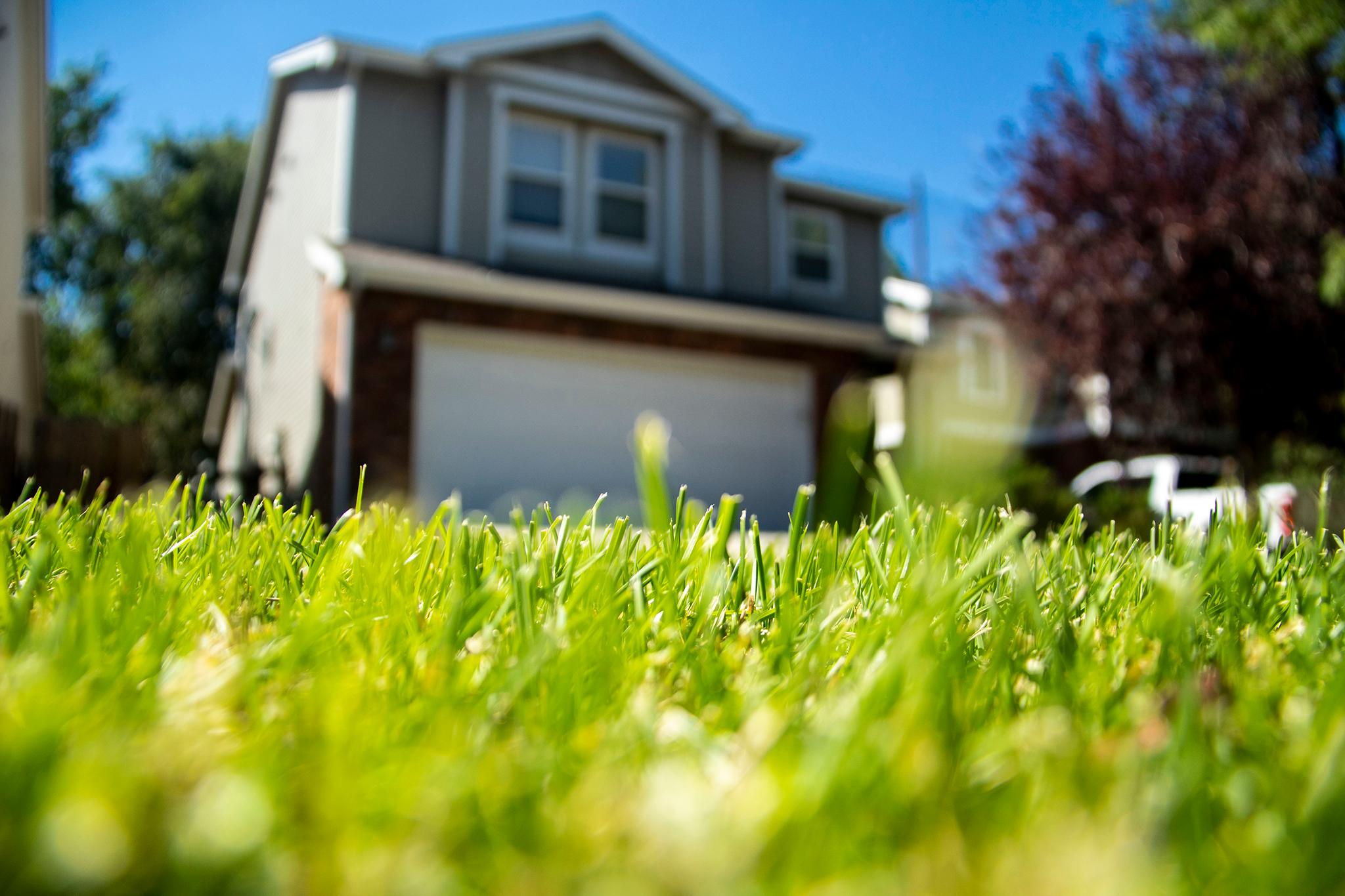
"We are currently in the process of developing the turf funding program, which will become available on or sometime before July 1, 2023," said Sara Leonard, a spokesperson for the Colorado Water Conservation Board. "What we do know is that only water providers, municipalities, local governments will be eligible to apply to CWCB for funding, and local eligible entities will decide how those funds will be used locally - whether for homeowners or commercial areas."
The state has drafted an FAQ where residents can find more information about the incentives.
"Another note is that because this is a 'pilot program' of sorts with a one-time transfer of $2 million, it has the potential for driving future more permanent programs if successful," she concluded.

So what's up with Denver?
Denverites wanting to receive a financial incentive to replace their lawns will have to wait until the new program has launched.
As for local anti-grass policies, water-intensive lawns are still allowed in the zoning code, and even with a new Green Code in the works, that probably won't change.
"In Denver, the zoning code does not limit the types of landscape materials that can be used on private property," said Community Planning and Development spokesperson Amanda Weston, in an email. "We do have provisions in the draft 2022 Denver Green Code - which will go to City Council for a vote later this fall - to limit turf-grass, but this provision, if passed, will be voluntary not mandatory.

